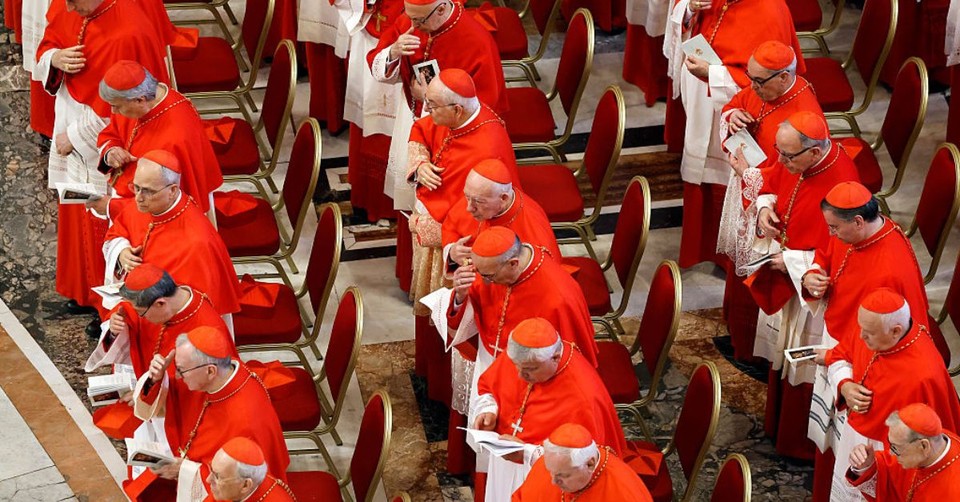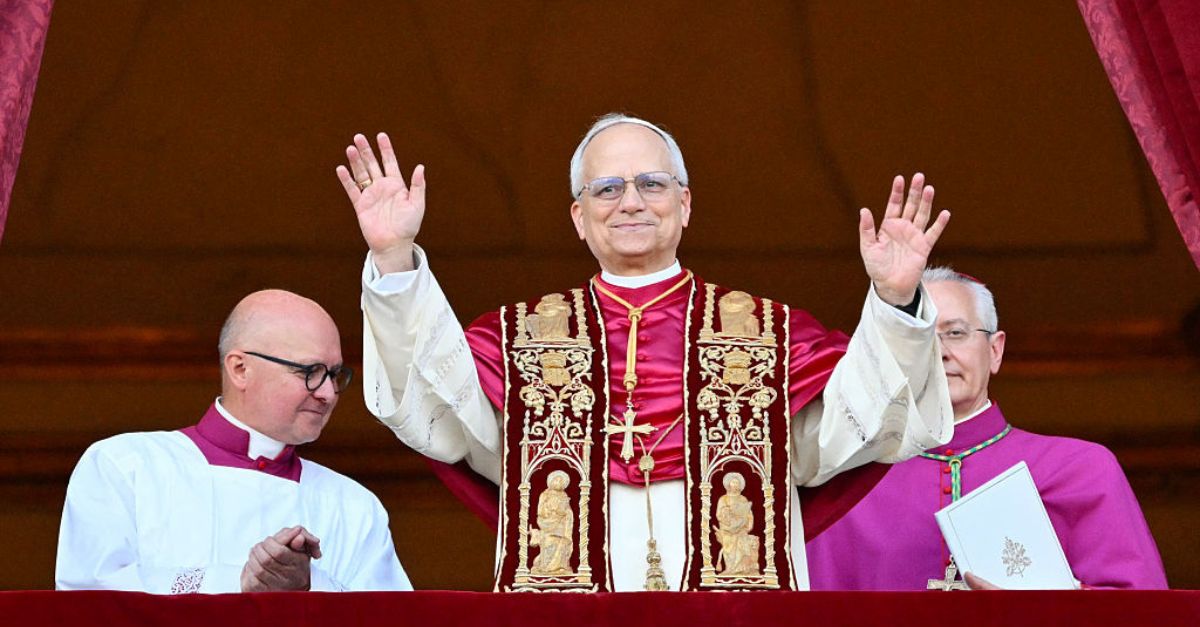3 Reasons Why Protestants Should Care Who Leads the Catholic Church

With the election of Pope Leo XIV, I’ve lived through four popes. Which means this is the third election of a pope for me. And that also means it’s the third cycle of that meme where we joke about smoke rolling out of a BBQ grill when a new Baptist pastor is selected. That seems to be the level of interest that we Protestants take when it comes to the election of a pope. The reality is that when the smoke rises from the Sistine Chapel, most Protestants yawn.
It’s understandable. We don’t follow the Pope. In fact, we’re kind of against the whole thing. We don’t swear allegiance to him, we don’t view him as the Vicar of Christ, nor do we wait for him to tell us what Scripture means. We’re Protestant for a reason. Why should we care about who is the head of a faith tradition that isn’t our own?
Allow me to come at this from a different angle. There is a difference between who chairs the Icelandic Curling Association and who gets appointed to lead the World Bank, right? Or maybe curling is your jam—so I’ll give another example so you can see my point. It doesn’t ultimately matter which llama won a blue ribbon at the Andean fair. But the person who wins the French presidential election is going to have some import.
Which of these is the election of the pope more like? It’s clearly the latter. We don’t really need to know who chairs the Icelandic Curling Association—though I’m sure they're amazing if the position actually exists. But I’ve never once had someone in my church come to me in a crisis over a curling scandal in Reykjavik. But you’d better believe that even if we don’t realize it, we’re impacted by the leader of the World Bank or even the president of France.
The person who sits in the Chair of St. Peter may not have authority over us—but he can still influence the climate we preach in. And there will be consequences to the decisions that this pope makes. And it will even impact the way people perceive Christianity as a whole. The everyday unchurched person doesn’t understand all the nuances between denominations. This means what happens within Catholicism does have some bearing on us Protestants.
That’s why, now that Pope Leo XIV—formerly Cardinal Robert Francis Prevost—has been elected the first American Pope, we need to pay attention. Not because he’ll tell us what to believe, but because how he leads the Catholic Church will have an impact on our world—and that is who we’re trying to reach.
Here are three reasons why it matters.
1. He’s the Most Powerful Religious Figure on Earth
Yeah, yeah… I know we can quibble with the way that’s phrased. What is “power” anyway? And might we say that your local church pastor, Sunday school teacher, or maybe mom and dad are actually the most powerful religious figures in a person’s life? We’re talking a bit more broadly here.
What I mean is that the Pope is the most recognizable religious leader in the world. He commands headlines on CNN and the BBC. He’s quoted in the New York Times, addressed by presidents, and followed by millions who don’t even know what transubstantiation means. And when he speaks, people assume he’s speaking for Christianity. And, like it or not, that’s not just Catholicism.
If you live in an area that is heavily Catholic, this will hold even more weight for you. But many of us live in towns where there are eight Protestant churches, thirteen bars, twenty-six car washes, and maybe a McDonald’s. In some towns, the Pope’s latest statement makes less of a splash than a markdown on pork and beans at the Save-A-Lot. It’s easy in such a climate to minimize the influence of the Pope.
But even in these places—maybe even more in these places—the cultural perception of Christianity still matters. Your local community might not be shaped a ton by the Pope. Or maybe it is. But my point is that many don’t make the distinction. The television shows and movies we watch don’t make that distinction. And so, when the Pope changes his tone on something like marriage or salvation or sin, it shifts the weather just enough that it changes how people hear what you’re saying in the pulpit. Not because he has authority over us, but because he still has volume.

Photo Credit: ©Getty Images/ALBERTO PIZZOLI/Contributor
2. Protestants Still Exist in the Shadow of Rome
Put down your pitchfork. Yes, I’d make an argument that Rome itself sits in the shadow of the gospel (or I’d make some point like that). But what I’m trying to say is that even the very name “Protestant” carries Rome in its roots. What are you protesting? See, we’re connected with Rome, even if we’d like to pretend that we aren’t.
This matters because the way the Pope interacts with Protestants will have consequences. There is an increasing movement to mute some of these differences between Protestants and Catholics. You’ll hear people say, “Well, I don’t really see much difference between a good Catholic and a good Protestant.” That’s true if by “good,” you mean “moral,” “kind,” or “family-oriented.” But it’s not true theologically. The gospel we preach—through faith alone, in Christ alone, by grace alone—is not the same as what is preached in a system where grace is mediated through sacraments and ultimate authority rests in a magisterium.
When a new Pope is chosen, the ecumenical tone can shift dramatically. A more conservative Pope might reassert some of these sharp doctrinal differences. It’ll be more difficult for an evangelical to “swim the Tiber” (that means becoming a Catholic) if the water suddenly gets cold with clarity. If this Pope decides to really emphasize papal authority, the infallibility of Rome, the necessity of sacraments, purgatory, the role of Mary, etc., then it’s going to make it more difficult. A more progressive Pope could form partnerships that obscure genuine theological disagreements.
We can talk later about whether or not this could be a good or bad thing. The point of this article is just to say that the Pope will have an impact on these relationships.
3. The Pope Could Be an Ally or an Obstacle
We’re not going to look to the Pope for spiritual direction. If he’s right about something (and there will be several areas where we might agree), we’ll celebrate that—but it won’t really change our view of the world. We don’t hang on his words to determine our doctrine. But we also can’t fool ourselves into thinking that he won’t affect the clarity or confusion of the Christian message in the public square.
This next Pope could be an ally—a voice that affirms biblical truth on important issues—or an obstacle. I’m not talking here about having the Pope in “our” corner in culture wars, but rather, on key issues that are connected to living out the gospel. We’re talking here about the broader moral credibility of the Christian faith. Or he could add to an already confused culture.
This is why Protestants should pay attention—not because we’re packing our bags to Rome, but because we care deeply about the truth. A Pope, even if wrong on some issues (even key ones), can be right in other areas. The more areas where he’s aligned with the gospel, the better that is. The truth is that God, in His providence, can use a pope as a restraining force against cultural decay.
We don’t need to be naïve. But we don’t need to be cynical either.
I don’t want to rehash all the debates between Catholics and Protestants. But I’ll say this—I’m holding out hope that the Pope (just like the local Baptist pastor or the Jewish rabbi) will have a saving knowledge of Christ and that this will influence every decision.
There can be great work done for the cause of Christ. There can also be great confusion. The man holds a significant amount of power and influence. And he’s just that, a man. That’s why my hope is that Christ will be honored in him.
Why would we not care about the man that is in this particular position?
Photo Credit: ©Getty Images/Mario Tama/Staff
Mike Leake is husband to Nikki and father to Isaiah and Hannah. He is also the lead pastor at Calvary of Neosho, MO. Mike is the author of Torn to Heal and Jesus Is All You Need. His writing home is https://mikeleake.net and you can connect with him on Twitter @mikeleake. Mike has a new writing project at Proverbs4Today.
Originally published May 15, 2025.




